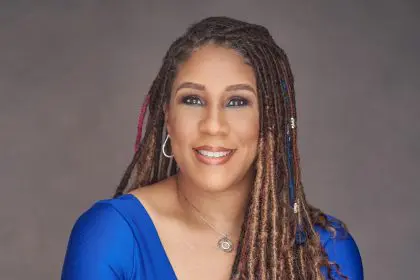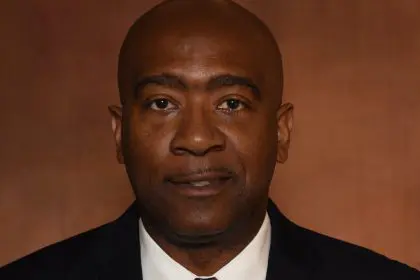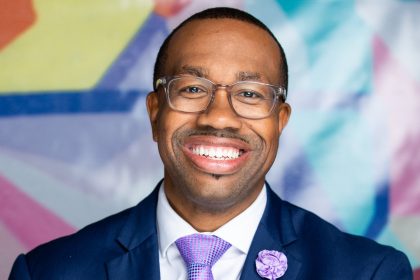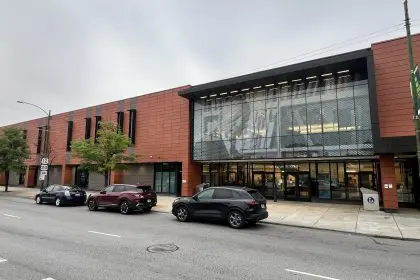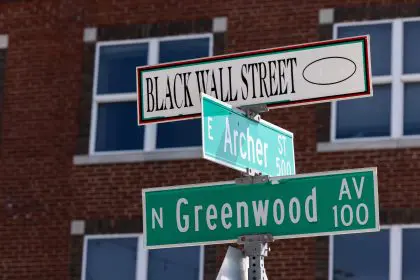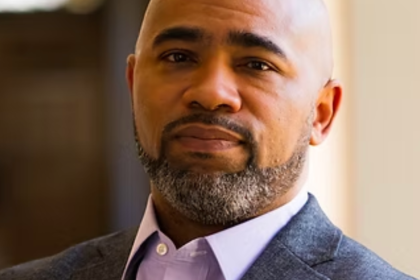In the fast-evolving landscape of entrepreneurship and wealth building, one leader stands out for her unwavering commitment to empowering Black entrepreneurs. Ashli Sims, a seasoned journalist and nonprofit leader, is at the helm of Build in Tulsa, an organization dedicated to elevating the next generation of underrepresented founders, startup leaders, and small business owners. In an enlightening conversation with Kevin Hooks, Sims shared her journey, challenges, and the transformative work being done to revive the legacy of Black Wall Street.
A legacy reclaimed
Sims is a Tulsa native with deep roots and a profound love for her city. Despite its tumultuous history, particularly the 1921 Tulsa Race Massacre, Sims is committed to reclaiming and honoring the legacy of Black Wall Street. “Tulsa was home to the most Black millionaires of any place in the country in the 1920s. It is my firm belief that we can take that mantle back in the 2020s,” Sims asserts. Her vision is not just about remembering history but using it as a blueprint for creating a prosperous future.
Through Build in Tulsa, Sims is working to empower Black entrepreneurs with the tools and resources they need to succeed. The organization focuses on three key pillars: financial capital, human capital, and social capital. By providing access to funding, skills training, and networking opportunities, Build in Tulsa aims to create a robust ecosystem that supports and nurtures entrepreneurial growth.
From storytelling to empowerment
Sims’ journey from journalism to nonprofit leadership has uniquely equipped her for this role. Her background as a television news reporter gave her an in-depth understanding of Tulsa’s intricacies, from government operations to nonprofit dynamics. “I saw the limitations of journalism and wanted to see the end of the story, not just talk about the tragedy but the triumph,” she explains. This desire led her to use her storytelling skills to raise funds for causes she cared about, ultimately bringing her back to Tulsa to address food insecurity during the pandemic.
The turning point came when Tulsa began to reckon with its past, specifically the 1921 Race Massacre. Sims joined Build in Tulsa, initially to lead fundraising efforts, but soon took on a larger role as the organization underwent leadership transitions. Under her guidance, Build in Tulsa has touched 400 entrepreneurs, facilitated over 10,000 hours of training, and invested $10 million into startups and small businesses, primarily supporting founders of color.
Building a future of inclusion
One of the core missions of Build in Tulsa is to use the historical legacy of Black Wall Street as a foundation for future success. Sims emphasizes that this legacy is not just a history lesson but a guide for today’s entrepreneurs. “This is not just your history, it is your legacy. This is what you’re meant to do,” she tells the founders and business owners she works with. The organization’s programs are designed to meet entrepreneurs wherever they are in their journey, offering support and training to help them scale their businesses.
Despite the challenges, including a widening racial wealth gap and a tough fundraising environment, Sims remains optimistic. “We are challenged every day to equip our founders with the right skill sets, the right mindset, and make the right introductions so they can be successful,” she says. Celebrating wins, no matter how small, and pushing forward despite setbacks are key components of her approach.
Looking ahead
The future of Build in Tulsa looks promising as the organization continues to expand its programs and impact. Sims envisions growing the support for tech-enabled businesses while also helping those with physical products achieve similar success. The goal is to ensure that every entrepreneur in Tulsa has the opportunity to build and grow their business, contributing to the city’s economic revival and honoring the legacy of Black Wall Street.
Sims call to action is clear: “If you care about entrepreneurship, building pathways to wealth, and making opportunity for the underrepresented and overlooked, go to buildintulsa.com. Make a donation, underwrite a program, become a mentor. Really lean into this process because all the help we need is right here. It is in our own community. If we band together, our collective wealth is way more than the $15 per household I mentioned. We need to realize that we are all we need.”
In closing, Hooks expressed his pride in Sims work and encouraged listeners to stay focused on equity and support initiatives that empower communities. With leaders like Sims at the forefront, the future of Black entrepreneurship in Tulsa and beyond looks bright, promising a legacy of success and inclusion for generations to come.
AI assisted in summarizing this episode of Equity in Focus.

